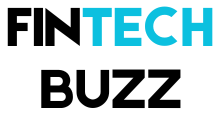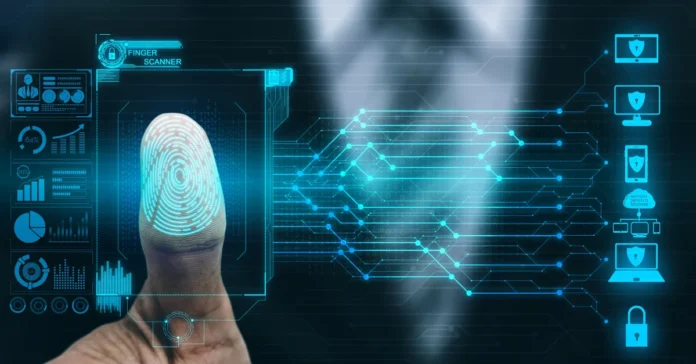As fintech continues to revolutionize the financial services landscape, one of the most crucial elements that ensures its security, efficiency, and trustworthiness is digital identity verification. This process involves confirming the identity of a user through electronic means, making it a critical component in preventing fraud, ensuring regulatory compliance, and enabling seamless digital transactions.
Why Digital Identity Verification Matters in Fintech
- Fraud Prevention and Security
- Fraudulent activities such as identity theft and account takeover are growing concerns in the digital world. With the rise of online banking, digital wallets, and other fintech services, verifying the identity of users ensures that only legitimate individuals can access sensitive financial information or make transactions. By implementing advanced identity verification methods such as biometric authentication, two-factor authentication (2FA), and AI-powered fraud detection tools, fintech companies can significantly reduce the risk of unauthorized access.
- Regulatory Compliance
- The global fintech industry operates in an environment where regulations are becoming increasingly strict. Anti-money laundering (AML) and Know Your Customer (KYC) regulations require companies to verify their users’ identities to prevent illicit activities such as money laundering and terrorist financing. Failure to comply with these regulations can lead to severe penalties and reputational damage for fintech companies. Digital identity verification helps businesses meet these regulatory requirements efficiently, ensuring that they stay compliant and secure.
- Seamless User Experience
- One of the key promises of fintech is to make financial services more accessible and user-friendly. Digital identity verification plays a vital role in providing a smooth customer experience. With modern technologies, customers can authenticate their identities quickly and easily using facial recognition, fingerprint scanning, or even voice recognition. This enhances the user experience by reducing the time spent on manual identity checks while maintaining a high level of security.
- Preventing Account Takeovers
- Account takeover is a growing threat in fintech, where fraudsters use stolen credentials to gain unauthorized access to an individual’s account. Multi-layered digital identity verification, such as combining biometric data with behavioral analytics (like how a person types or uses a device), can drastically reduce the chances of account takeovers. These advanced measures ensure that even if a password is compromised, the account remains secure due to other verification factors.
- Facilitating Trust and Transparency
- Trust is one of the most valuable commodities in the financial sector. Digital identity verification builds trust by ensuring that customers’ personal information is safeguarded and handled responsibly. As customers become more aware of digital security concerns, they are more likely to engage with fintech platforms that implement strong identity verification systems. This not only helps in retaining existing customers but also attracts new ones who prioritize security.
- Scaling Fintech Solutions Globally
- For fintech companies looking to expand globally, digital identity verification becomes even more important. Countries with different legal and regulatory frameworks pose challenges when it comes to identity verification. Fortunately, advanced digital verification solutions can be tailored to meet the specific requirements of each region, enabling fintech companies to operate in multiple jurisdictions without compromising security or compliance.
- Enhancing Innovation in Fintech
- With the integration of digital identity verification, fintech companies can foster more innovative solutions. For instance, digital identity enables seamless onboarding, real-time lending, or blockchain-based solutions where verifying the identity of participants is crucial. As digital identity solutions continue to evolve, they will drive innovation in fields like decentralized finance (DeFi), digital banking, and insurance tech.
Technologies Driving Digital Identity Verification
- Biometric Authentication
- Facial recognition and fingerprint scanning are becoming standard methods for verifying digital identities. These biometric systems are not only convenient but also highly secure, as they are difficult to replicate or spoof.
- Artificial Intelligence (AI) and Machine Learning
- AI is increasingly being used to enhance the accuracy of identity verification. Machine learning algorithms can analyze user data to detect suspicious activity or mismatches in identity, providing an additional layer of security.
- Blockchain Technology
- Blockchain is playing a key role in decentralizing digital identity systems. By using blockchain to store identity data securely, individuals can have greater control over their own personal information, making it easier to verify their identity without relying on third-party services.
- Document Verification and OCR (Optical Character Recognition)
- OCR technology allows fintech companies to quickly scan and verify official documents such as passports, driver’s licenses, and national IDs. This allows for faster and more accurate identity verification without requiring physical document submission.
- Multi-Factor Authentication (MFA)
- MFA adds an extra layer of security by requiring users to verify their identity through multiple means, such as a password combined with a one-time code sent via SMS or email.
Challenges in Digital Identity Verification
Despite the advantages, implementing digital identity verification in fintech is not without its challenges:
- Privacy Concerns: Storing personal data and biometric information requires strict adherence to privacy laws. Companies must ensure they protect their users’ sensitive data and avoid data breaches.
- Fraudsters Evolving Techniques: As identity verification technologies evolve, so do the tactics used by fraudsters. Continual advancements in security are necessary to stay ahead of new threats.
- User Adoption: While digital identity verification offers significant benefits, some users may be hesitant to adopt new technologies due to concerns about privacy or complexity.
Conclusion
In the evolving landscape of fintech, digital identity verification is no longer optional; it’s a fundamental aspect of building a secure, trusted, and compliant financial ecosystem. As fintech continues to expand globally, this technology will be crucial in enabling innovation while ensuring the protection of users’ identities and sensitive data. By embracing robust identity verification practices, fintech companies can reduce fraud, increase customer trust, and comply with regulations, all while delivering a seamless user experience.
#DigitalIdentity #FintechSecurity #IdentityVerification #FraudPrevention #AMLRegulations #BiometricAuthentication


